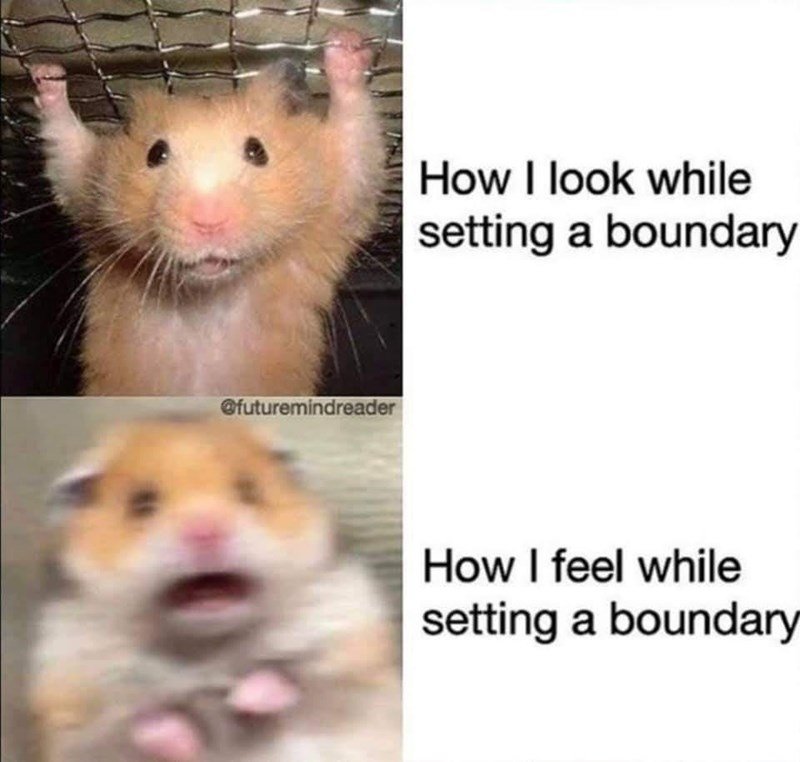3 Ways Anxiety Impacts Relationships: How Therapy Can Offer Relief for Anxious Millennial Women
As a millennial woman, you likely find yourself juggling multiple roles and responsibilities, from building a career to maintaining personal relationships and pursuing your passions. However, anxiety can often cast a shadow over your life, affecting not only your individual well-being but also your relationships with partners, family, and friends. In this blog post, I’ll share three ways in which anxiety impacts relationships and discuss how therapy can provide valuable tools and support to navigate these challenges.
1. Communication and Emotional Expression
Anxiety can significantly impact the way you communicate and express your emotions within relationships. When anxiety levels are high, you may find it challenging to effectively communicate your needs, fears, and desires. You may become overly sensitive to criticism or rejection, leading to defensiveness or withdrawal.
You might become a faucet that won’t shut off, finding yourself speaking at a fast pace with a lot of content for a long time until you can’t remember the point you were trying to get across. Your partner may struggle to understand the underlying reasons for your reactions, which can create tension and misunderstanding in the relationship.
"Anxiety is like a third party in the relationship, always present and exerting its influence on communication and emotional connection." - GoodTherapy
You might be thinking, but communication is a two-way street. Even if you are in a relationship you can drastically change the dynamics by working on your own communication skills. Therapy can help you develop healthy communication skills and increase your self-awareness.
Working with a therapist, you can learn to identify and express your emotions effectively, gaining insight into your anxious thoughts and behaviours. By improving your ability to communicate openly and honestly, you can foster understanding and create a safe space for vulnerability in your relationships.
2. Trust and Intimacy
Anxiety can also impact trust and intimacy within your relationships. When anxiety takes hold, you may find yourself constantly questioning the intentions and loyalty of your partner, even in the absence of evidence. Anxiety acts like a fog, or a pair of dirty glasses, blurring your vision so you’re not sure what’s what and always squinting to figure out what’s true and what to trust. This distrust can lead to overanalyzing situations, feeling insecure, and seeking constant reassurance, placing a strain on the relationship.
"Anxiety can create a cycle of doubt and reassurance-seeking, putting strain on the bond of trust within a relationship." - Verywell Mind
Therapy offers a supportive environment where you can explore the root causes of your anxieties and address any underlying issues contributing to your lack of trust. Because wework from a relational lens at The Relationship Agency, wewill almost always explore your past experiences with trust in relationships and identify patterns that might be holding you back from building trust.
Your therapist might also guide you through various techniques, such as cognitive-behavioural therapy (CBT), to challenge negative thought patterns and develop healthier perspectives. Through therapy, you can rebuild trust, develop a stronger sense of self, and cultivate deeper levels of intimacy within your relationships.
3. Emotional Support and Boundaries
Anxiety often brings with it a need for constant reassurance and support from your partners. While seeking support is essential, relying solely on your partners to alleviate your anxiety can create an unhealthy dynamic. It can lead to emotional exhaustion for both parties, causing resentment and a sense of being overwhelmed.
“What even are boundaries?” - you, the anxiety ridden people pleaser
Boundaries are talked about a lot online these days, but there’s a lot of confusion about what they actually are. Boundaries are an essential aspect of maintaining healthy relationships, especially when anxiety is present. Simply put, boundaries are the limits you establish to protect your emotional, physical, and mental well-being. They define what is acceptable and what is not in terms of your personal space, time, and energy.
Establishing and communicating boundaries allows you to prioritize your needs, set realistic expectations, and maintain a sense of autonomy within your relationships. Boundaries provide a framework for healthy interactions, ensuring that both partners' needs and boundaries are respected.
Setting boundaries can be scary for people with anxiety, especially if your anxiety is tied to beliefs that you’re not good enough, or that you need to sacrifice yourself in order to be loved in a relationship.
Through therapy, you can gain a deeper understanding of your own boundaries and learn effective ways to communicate and enforce them, promoting balance and fostering healthier, more fulfilling relationships. Therapy can empower you to establish healthy boundaries and develop a self-care routine that includes strategies to manage anxiety independently. By learning coping mechanisms and stress reduction techniques, you can create a foundation of self-reliance and emotional well-being. This, in turn, fosters a more balanced and sustainable support system within your relationships.
Therapy can offer a lifeline for anxious millennial women
Anxiety can pose significant challenges in your relationships, affecting communication, trust, and emotional support. However, therapy can offer a lifeline for anxious millennial women, equipping you with the necessary tools to navigate these obstacles. Through therapy, you can cultivate self-awareness, develop healthy communication skills, rebuild trust, and establish boundaries that promote emotional well-being. Remember, seeking help is not a sign of weakness but a courageous step towards building stronger, more fulfilling relationships and nurturing your own mental health.


